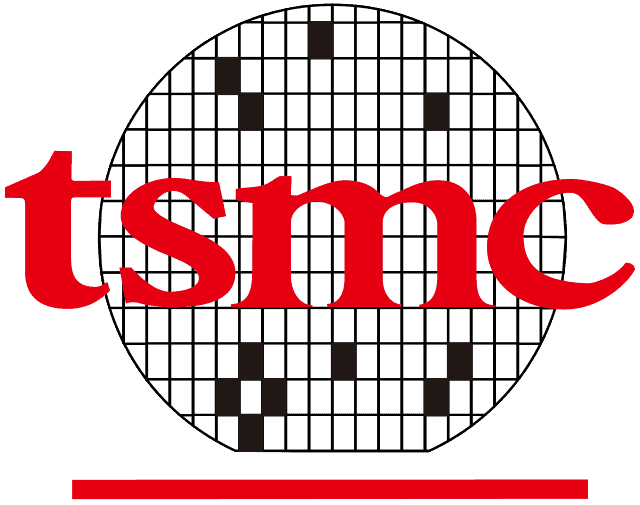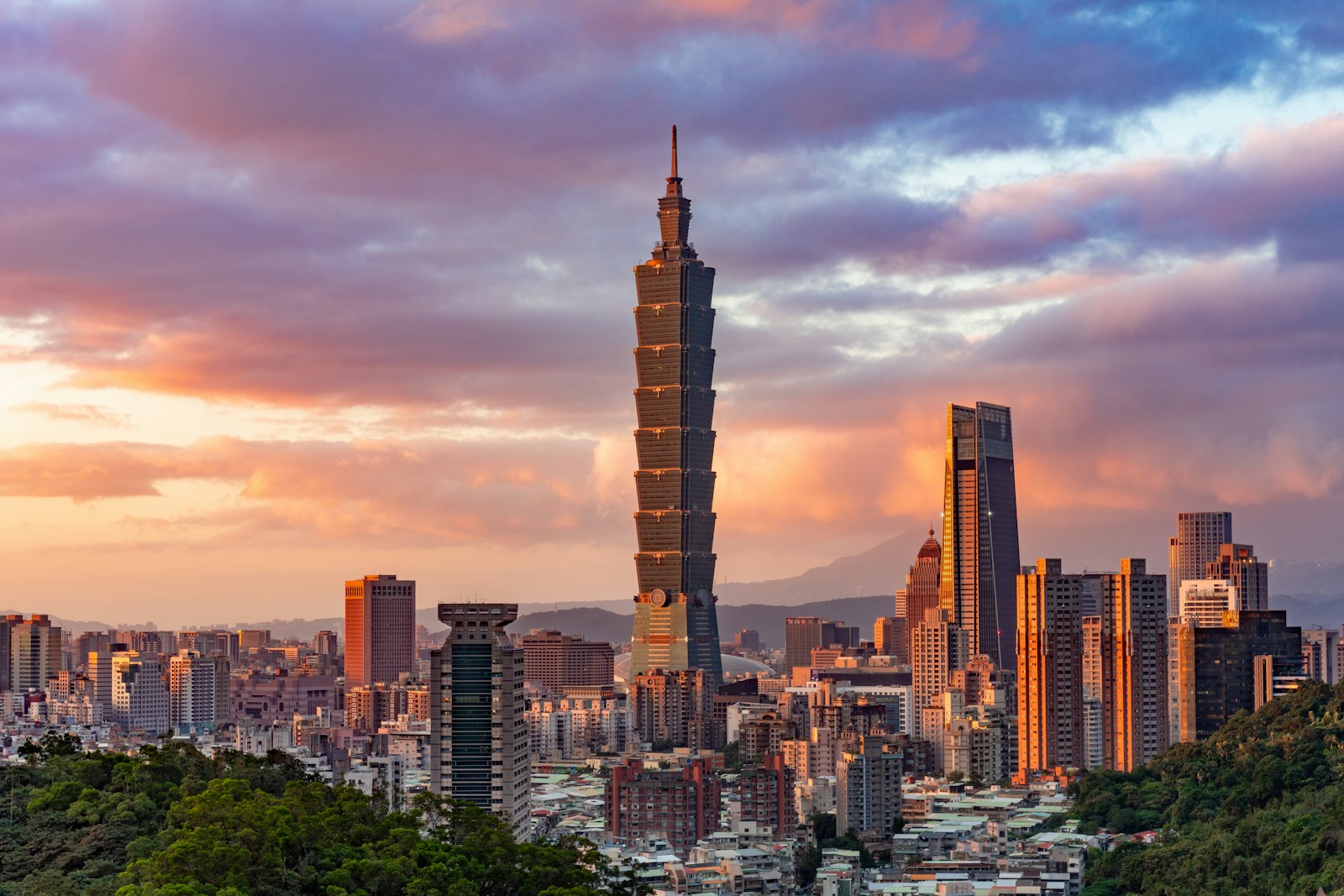Recent polling data reveals a significant trend in Taiwan’s public sentiment regarding semiconductor technology transfers. Over 80% of Taiwanese citizens oppose transferring Taiwan Semiconductor Manufacturing Company’s (TSMC) advanced technology to the United States, according to surveys conducted by the Foundation for the People. This overwhelming opposition highlights the deep national concern about protecting what many consider Taiwan’s most strategic economic asset.
The semiconductor industry has evolved into what Taiwanese refer to as their “economic central mountain range” – a protective barrier that some believe helps shield the island from potential Chinese military threats. With Taiwan recording a record-high trade surplus of US$73.9 billion with the United States last year, many citizens view their technological expertise in chip manufacturing as a critical advantage that should remain under local control.

This resistance comes amid growing global competition for semiconductor manufacturing capabilities and concerns about the implications of Donald Trump’s potential return to office. The same poll indicated that 85.6% of respondents expect Trump to impose tariffs on Taiwan, while 62.4% believe the US holds the upper hand in trade negotiations, creating additional tension around the issue of technology transfers.
TSMC’s Global Expansion Sparks Controversy
As the world’s leading semiconductor manufacturer, Taiwan Semiconductor Manufacturing Company (TSMC) has long been a crucial player in global technology. Its advanced chips power everything from smartphones to artificial intelligence systems. However, the company’s recent efforts to expand production in the U.S. have triggered concerns among many in Taiwan.
While the U.S. sees TSMC’s involvement as essential for securing its semiconductor supply chain, Taiwanese citizens and officials worry that transferring advanced chip-making technology abroad could weaken the country’s strategic position. Taiwan’s semiconductor dominance has often been described as a “silicon shield,” deterring potential threats by making the island indispensable to the global economy.
Taiwan’s Fear of Losing Its ‘Silicon Shield’
For decades, Taiwan has leveraged its semiconductor industry as a key geopolitical asset. The island produces over 60% of the world’s semiconductors and more than 90% of the most advanced chips. This has made Taiwan an essential part of global supply chains and an irreplaceable partner for major technology firms.
However, with TSMC investing heavily in overseas production—particularly in Arizona—many fear that Taiwan’s unique advantage may erode. If cutting-edge chip-making expertise is shared with foreign nations, Taiwan’s bargaining power on the global stage could diminish. Some believe that a significant technology transfer would make Taiwan more vulnerable to geopolitical threats, particularly from China.
The U.S. Push for Domestic Semiconductor Manufacturing
The U.S. government has been aggressively pushing for semiconductor production to move onshore, citing national security concerns. The CHIPS and Science Act, passed in 2022, offers billions in subsidies to encourage companies like TSMC, Samsung, and Intel to build advanced chip plants in the U.S.
From Washington’s perspective, securing domestic semiconductor production is a critical step in reducing reliance on foreign manufacturers, particularly in Asia. The COVID-19 pandemic and rising U.S.-China tensions have highlighted vulnerabilities in global supply chains, leading to a push for greater self-sufficiency.
TSMC’s planned $40 billion investment in Arizona aligns with this strategy, but it has sparked backlash in Taiwan, where many view it as a move that benefits the U.S. at Taiwan’s expense.
Opposition from Taiwanese Citizens and Officials
Public sentiment in Taiwan reflects deep unease over TSMC’s overseas expansion. Many worry that the company’s most advanced technologies could be shared with U.S. firms, diminishing Taiwan’s competitive edge. Some lawmakers have even proposed measures to limit the transfer of semiconductor know-how to foreign countries.
Taiwan’s Minister of Economic Affairs has reassured the public that TSMC will not give away its most advanced chip-making capabilities. The company’s Arizona facility, for instance, will focus on manufacturing 4nm and 3nm chips—still advanced, but not the cutting-edge 2nm process that TSMC is developing in Taiwan.
Despite these reassurances, skepticism remains. Many in Taiwan fear that continued pressure from the U.S. could eventually lead to a more significant technology shift, making Taiwan less critical in the global semiconductor supply chain.
China’s Perspective: A Political Power Play?
China has seized on the controversy, framing TSMC’s U.S. expansion as part of a broader effort by Washington to weaken Taiwan’s economic position. Chinese state media have accused the U.S. of trying to “hollow out” Taiwan’s semiconductor industry in exchange for political support.
Beijing has long claimed Taiwan as part of its territory and has warned that the island’s semiconductor dominance would not protect it from potential military action. By portraying TSMC’s overseas moves as a loss for Taiwan, China hopes to stoke internal divisions and cast doubt on Taiwan’s reliance on Western allies.
What’s Next for TSMC and Taiwan’s Semiconductor Industry?
As TSMC continues its global expansion, the debate over technology transfer is unlikely to fade anytime soon. The company remains a critical player in both Taiwan’s economy and the global tech industry, balancing the demands of major customers, political allies, and its home country’s strategic interests.
Going forward, Taiwan may seek to implement stricter regulations on technology transfers to ensure that its semiconductor expertise remains protected. Meanwhile, the U.S. will continue its push for greater self-reliance in semiconductor manufacturing, potentially reshaping the balance of power in the global chip industry.
For now, the battle over TSMC’s future is about much more than business—it’s a high-stakes geopolitical struggle that could shape the future of technology and global security.
Key Takeaways
- Over 80% of Taiwanese citizens oppose transferring TSMC’s advanced technology to the United States according to recent polls.
- Many Taiwanese view their semiconductor industry as a vital economic shield that provides national security benefits.
- Public opinion reflects concern about maintaining Taiwan’s technological advantage amid complex international trade dynamics.
Context of TSMC’s Operations in Taiwan
Taiwan Semiconductor Manufacturing Company (TSMC) has grown into a cornerstone of Taiwan’s economy and a global powerhouse in chip manufacturing, balancing domestic interests with international demands in an increasingly complex geopolitical landscape.
Economic Impact of TSMC in Taiwan
TSMC represents more than just a company in Taiwan—it’s the backbone of the national economy. The semiconductor giant accounts for approximately 4% of Taiwan’s GDP and supports hundreds of thousands of high-paying jobs both directly and through its supply chain.
TSMC’s presence has transformed Taiwan into a semiconductor hub, attracting related businesses and creating a robust ecosystem of suppliers, designers, and support services. This cluster effect has positioned Taiwan as the “Silicon Island” of Asia.
The company contributes significantly to Taiwan’s export economy, with semiconductors representing about 35% of all Taiwanese exports. This economic dependence explains why many Taiwanese citizens view TSMC as a “sacred mountain” that safeguards the nation, as noted in the Taipei Times reference.
Strategic Importance of Semiconductor Manufacturing
TSMC’s advanced manufacturing capabilities provide Taiwan with unique geopolitical leverage. The company produces over 90% of the world’s most advanced chips, making it indispensable to global technology supply chains.
This manufacturing dominance creates what security experts call the “Silicon Shield”—the theory that Taiwan’s semiconductor leadership helps deter potential aggression by making the island too valuable to attack.
The search results highlight how TSMC sits at the intersection of U.S.-China tensions, with both superpowers relying heavily on its production capabilities. This places Taiwan in a delicate position of navigating complex international relationships while protecting its technological crown jewel.
As global competition intensifies, TSMC’s advanced manufacturing remains concentrated in Taiwan despite pressures to diversify geographically. This concentration of expertise reinforces Taiwan’s strategic importance in the global technology landscape.
Historical Tech Transfer Precedents
Taiwan has previously experienced the consequences of technology transfer in other industries. The textile and electronics assembly sectors, once Taiwan’s economic drivers, declined after companies moved production to mainland China and Southeast Asia seeking lower costs.
These historical examples have made Taiwanese citizens wary of similar patterns with TSMC. Previous tech transfers often resulted in the original manufacturing base losing competitive advantage and experiencing economic downturns.
TSMC itself has carefully managed its technology sharing. While operating fabs in China, the company has strategically kept its most advanced processes in Taiwan. This careful balancing act demonstrates the company’s awareness of the risks associated with technology transfer.
The current push for TSMC to build advanced facilities in the U.S. represents an unprecedented level of technology sharing, raising concerns about potential long-term impacts on Taiwan’s semiconductor leadership and economic security.
Resistance to Tech Transfer to the U.S.
Taiwan’s semiconductor industry faces growing pressure for technology transfers to the United States, particularly regarding TSMC’s advanced processes. The majority of Taiwanese citizens and many government officials express strong opposition to sharing their crown jewel technologies abroad.
Public Opinion on Tech Transfer
Recent polls reveal overwhelming resistance among Taiwanese citizens regarding technology transfers to the United States. According to a survey by the Foundation for the People, approximately 83.8% of respondents oppose transferring TSMC’s advanced technology to the U.S.
Many Taiwanese view the semiconductor sector as their “economic central mountain range” – a critical shield protecting Taiwan from Chinese military threats. This protective value extends beyond economics into national security.
Citizens fear that transferring cutting-edge processes like the 2nm technology would erode Taiwan’s competitive advantage. The overwhelming sentiment reflects concerns that Taiwan’s technological expertise, which forms the backbone of its economic strength, should remain under local control.
TSMC’s advanced manufacturing capabilities represent more than just business assets to the average Taiwanese citizen – they symbolize national pride and security.
Government Stance on TSMC’s Technology Transfer
Taiwan’s government has maintained a cautious position regarding technology transfers abroad. The Lai administration has indicated it would likely object to technology transfers or the establishment of TSMC research and development efforts outside Taiwan.
However, recent developments show some flexibility in this position. Following comments from U.S. President Donald Trump about bringing chip production back to America, Taiwan’s president Lai Ching-te pledged to enhance communication with the U.S. and increase investments there.
The National Science and Technology Council Minister has suggested Taiwan could discuss transferring 2nm technology to TSMC’s U.S. fabs, but only after mass production begins in Taiwan first. This indicates a strategic approach: retaining the initial production advantage while potentially allowing later-stage knowledge sharing.
The government walks a tightrope between protecting national interests and maintaining positive relations with its key security partner.
Potential Risks and Consequences
Technology transfer poses several significant risks to Taiwan’s economy and security posture. Sharing advanced chip manufacturing processes could potentially diminish Taiwan’s strategic importance to the United States and other allies.
Many experts argue that Taiwan’s semiconductor prowess serves as a form of “silicon shield” – making the island too valuable to global supply chains for China to risk military action. Diminishing this advantage could alter regional security calculations.
Economically, transferring TSMC’s most advanced nodes abroad might lead to job losses and reduced economic growth in Taiwan. The semiconductor industry directly and indirectly employs hundreds of thousands of Taiwanese workers.
Intellectual property concerns also arise, as transferred technologies might face higher risk of competitive exposure. Once technology moves beyond Taiwan’s borders, maintaining exclusive control becomes more challenging.
The transfer could potentially accelerate a brain drain of top Taiwanese semiconductor talent to overseas facilities, further weakening the domestic industry’s long-term competitiveness.
Frequently Asked Questions
The tech transfer discussions between TSMC and the United States raise numerous questions about economic implications, strategic positioning, and potential risks for both Taiwan and the company. These concerns reflect the complex geopolitical and business considerations underlying semiconductor manufacturing strategies.
What are the implications of TSMC transferring technology to the U.S. for Taiwan’s economic stability?
Taiwan’s economy depends heavily on its semiconductor industry, with TSMC serving as a cornerstone of national economic security. A technology transfer to the U.S. could potentially weaken Taiwan’s competitive advantage in this critical sector.
Many Taiwanese citizens worry that moving advanced manufacturing capabilities offshore might result in job losses and reduced tax revenue. TSMC employs thousands of highly skilled workers in Taiwan, and these positions contribute significantly to the local economy.
The transfer of cutting-edge technology could also diminish Taiwan’s strategic importance to the global supply chain, potentially affecting its international relations and security arrangements.
How does TSMC’s tech transfer align with U.S. semiconductor self-sufficiency goals?
The U.S. has been actively pursuing semiconductor manufacturing independence through initiatives like the CHIPS Act. TSMC’s Arizona facility represents a significant step toward this goal of reducing reliance on foreign chip production.
Current search results indicate that TSMC’s U.S. facilities may not immediately receive the most advanced technologies. This suggests a gradual approach to technology transfer that balances U.S. self-sufficiency goals with Taiwan’s economic interests.
American officials view domestic chip production as essential for national security and supply chain resilience, especially given recent shortages.
What are the strategic risks for TSMC in sharing its technology with U.S. entities?
TSMC faces potential knowledge diffusion risks if its proprietary manufacturing methods become more widely understood in the U.S. This could eventually lead to increased competition from American companies.
The company must also navigate complex compliance and regulatory requirements that differ significantly from those in Taiwan. As noted in the search results, TSMC’s CEO has mentioned that construction in Arizona takes at least twice as long as similar projects in Taiwan.
Staffing presents another challenge, with reports indicating that 50% of TSMC’s Arizona employees come from Taiwan despite recent efforts to localize the workforce.
How might the tech transfer affect Taiwan’s position in the global semiconductor market?
Taiwan currently dominates advanced semiconductor manufacturing, with TSMC producing the majority of the world’s leading-edge chips. A significant tech transfer could gradually erode this dominant position.
Some analysts believe Taiwan will maintain its edge because the most advanced nodes will remain in Taiwan first. According to the search results, Taiwan’s National Science and Technology Council has indicated that 2nm technology transfer discussions would only occur after mass production begins in Taiwan.
The relationship between Taiwan’s semiconductor industry and global technology companies may shift as more production capacity becomes available in the U.S.
What are the potential benefits and drawbacks for TSMC in conducting a tech transfer to the U.S.?
Benefits include greater access to the U.S. market, potential government subsidies, and reduced geopolitical risk through geographical diversification of manufacturing facilities. This strategy helps TSMC hedge against regional instabilities.
Drawbacks involve significantly higher operating costs in the U.S., challenges in building a qualified workforce, and longer construction timelines. As reported, TSMC’s Arizona plant development has faced delays due to permitting processes and construction regulations.
The company also risks diluting its competitive advantages by sharing technological expertise that has been developed over decades in Taiwan.
How does the tech transfer agreement address intellectual property and competitive concerns?
TSMC must balance knowledge sharing with protecting its core intellectual property. The company typically maintains tight control over its most critical manufacturing processes and technologies.
Any tech transfer agreements likely include strict confidentiality provisions and limitations on how transferred technology can be used. These protections are essential to prevent unintended technology diffusion.
The specifics of these agreements often remain confidential, but they generally aim to ensure that TSMC retains control over its intellectual property while satisfying U.S. requirements for domestic semiconductor manufacturing capability.







